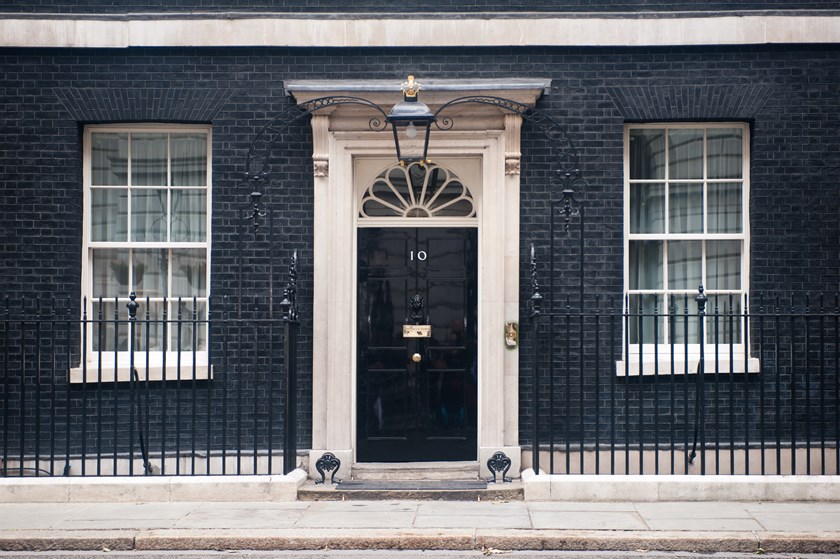Spring Budget 2024 – radical reform of non-dom taxation: a summary
Insight

In recent years there has been increasing political pressure to substantially restrict or abolish the regime for non-domiciled individuals living in the UK. It was therefore no great surprise that the Government announced in today’s Budget Statement a radical revision of the tax treatment of non-domiciliaries.
From 6 April 2025, individuals moving to the UK will be exempt from UK tax on all non-UK profits for their first four years of UK residency. From year five, they will be taxed on all profits in exactly the same way as standard UK taxpayers. Time will tell whether this will be attractive to wealthy foreigners considering moving to the UK. Similar regimes are widely considered to be a success in countries such as Italy, although the terms of the proposed new UK regime would appear to be more restrictive.
The proposals which were published in today’s Budget are currently high level and, as ever, the precise details will be critical.
It is worth adding that there will be a General Election before 6 April 2025, when the changes will be introduced. The Labour Party, which is in opposition, had already announced that it would abolish the non-dom regime. It is not yet clear whether it will simply implement the changes proposed today.
We hope this briefing provides an easy-to-read guide to the proposed changes. We expect to publish a more in-depth briefing (including planning points) shortly and to update you on key points of detail once draft legislation and commentary has been published.
The current non-dom/remittance basis regime
The UK has long had a special taxing regime for non-UK domiciled individuals (non-doms): these are individuals who do not originate from the UK and who have not settled in the UK. This regime is known as the “remittance basis” and in broad terms provides tax relief for non-dom individuals on non-UK income and gains which they do not bring to or spend in the UK.
The regime was substantially amended in 2008 and again in 2017. These changes introduced in particular an annual charge and a maximum period of 15 years for the regime. However, provided that the correct planning has been implemented, it has still been possible for a non-dom to live in the UK for a substantial period of time with little or no UK tax.
New tax regime
Today’s announcement indicates a radical overhaul of the remittance regime.
In short: the regime will be based on residence (not domicile) and will apply to individuals in their first four years of UK residency (provided that they have been non-UK resident for at least 10 years). Foreign profits (income and gains) will be entirely exempt and can be spent in the UK without being taxed.
Transitional provisions
In addition, the Government announced certain transitional provisions for existing users of the remittance basis regime. These are intended to ensure that existing users are not affected too harshly by the changes and to encourage these individuals to bring money to the UK (when such remittances have been highly taxed to date). The proposed timings and apparent generosity of these provisions potentially provides opportunity for significant tax savings if careful planning steps are taken during the transition period.
In summary, the transitional provisions are as follows:
- individuals who move from the remittance basis on 6 April 2025 and who are not eligible for the new regime will only be taxed on 50 per cent of the foreign income received in the tax year 2025/26 (ie from 6 April 2025 to 5 April 2026)
- individuals who (under current rules) would still have been taxed on the remittance basis for tax year 2025/26 will have the option to rebase foreign assets to their value at 5 April 2019
- remittances between 6 April 2025 and 5 April 2027 of foreign income and gains which arose while an individual was subject to the remittance basis will be taxed at a special low rate of 12 per cent (rather than the usual rates of up to 45 per cent on income and 20 per cent on gains).
We have summarised the changes in the table below with the intention of highlighting the key changes to the existing regime.
|
|
Existing regime |
New regime |
Comment |
|
Eligibility for regime (income tax and capital gains tax) |
Eligible if non-UK domiciled (broadly if your permanent home is outside the UK) and resident in the UK for less than 15 years. |
Eligible for first four years of UK residency (if non-UK resident for at least 10 years before that). |
Domicile is a uniquely English law concept which has no statutory definition and is based on intentions. It can therefore be difficult to assess and open to abuse. It also differs from tax concepts used in other countries which can create confusion. UK residency is based on a clear statutory test so this will make the test clearer and simpler. |
|
Basis of regime (income tax and capital gains tax) |
UK source income and gains subject to UK tax. Foreign income and gains subject to tax only if brought to the UK (remitted). |
UK source income and gains subject to UK tax. Foreign income and gains entirely exempt from UK tax (and can be brought to the UK without a UK tax charge). |
Under the new regime there will be no tax on bringing foreign income and gains to the UK and therefore no tax disadvantage to spending and investing in the UK. |
|
Trust Protections for income and capital gains |
Where a trust has been settled by a non-UK domiciled individual, foreign income and most gains can roll up in the trust free from UK tax. They are then potentially subject to UK tax only by reference to distributions made to UK residents. |
Trust protections will no longer apply. During the first four years of UK residency foreign income and gains and certain distributions outside the UK will be entirely exempt. After the first four years all profits in the trust will be taxable on the settlor of the trust. Beneficiaries will be taxable on distributions wherever made. |
This simplifies the position but reduces the ability for settlors of trusts to roll up profits on non-UK money they are not using. |
|
Inheritance tax on assets held directly |
Non-dom individuals who have not been resident in the UK for 15 years are only subject to UK inheritance tax on UK assets (including UK residential property held indirectly). |
Individuals will only be subject to UK inheritance tax on their UK assets for their first 10 years of UK residency (if non-UK resident for at least 10 years before that). After the 10 years they will be subject to inheritance tax on their worldwide assets. |
The inheritance tax proposals are subject to consultation so are even less certain than the other proposals. As noted above, the reliance on residence rather than domicile is simpler and clearer. However, under the current regime it is possible to “re-set” your domicile clock for inheritance tax by being non-UK resident for at least 4 years (provided you don’t return to the UK before 6 complete years of non-UK residency). Under the new regime this would take 10 years. |
|
Inheritance tax on assets held in trust |
Non-UK assets held by a trust settled by a non-dom who has not been resident in the UK for 15 years are exempt from UK inheritance tax. |
Trusts will retain existing protection from inheritance tax. Non-UK assets held by trusts settled after 6 April 2025 will be exempt if they are settled in the first 10 years of UK residency. |
This appears to provide an ongoing incentive for people moving to the UK to create trusts before, or soon after, doing so. The proposals are not clear on this point and it is possible that trusts created under the new regime before 10 years of residence may not be exempt from inheritance tax. It is also possible that 10 yearly charges (at up to 6%) will apply if the settlor is within the new inheritance tax regime at the time. |
This publication is a general summary of the law as at the date of publication. It should not replace legal advice tailored to your specific circumstances.
© Farrer & Co LLP, March 2024






